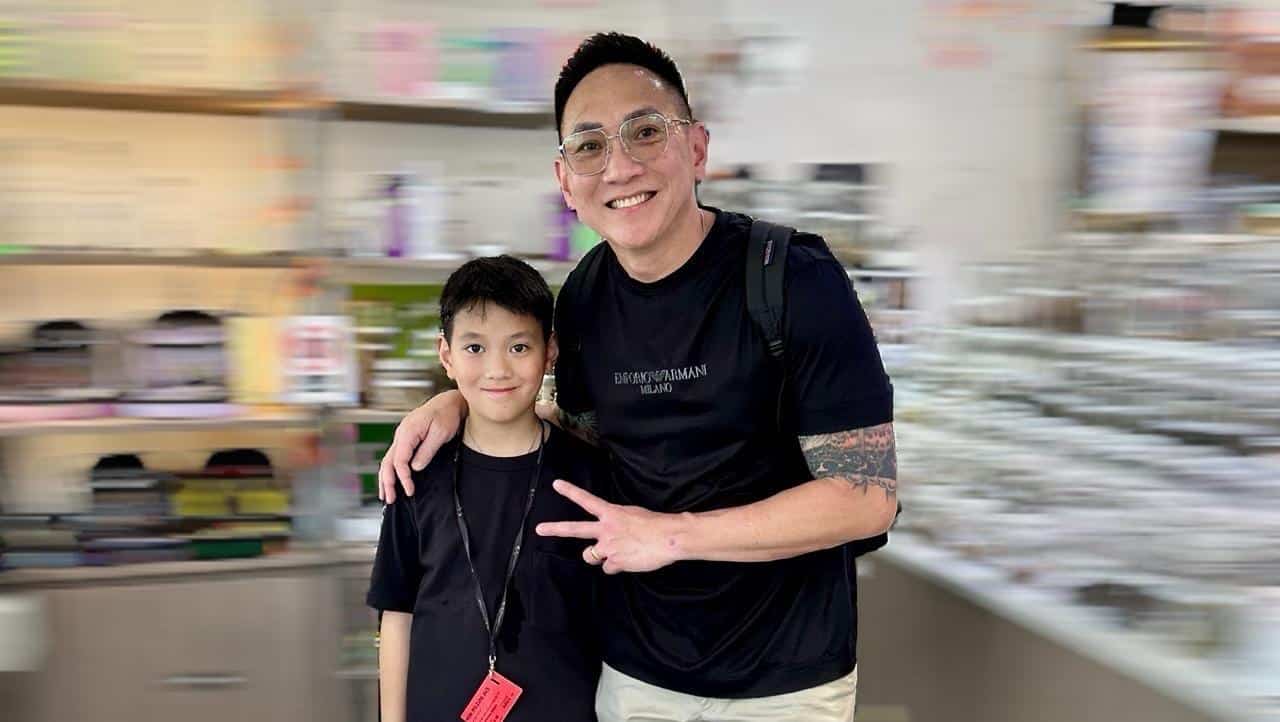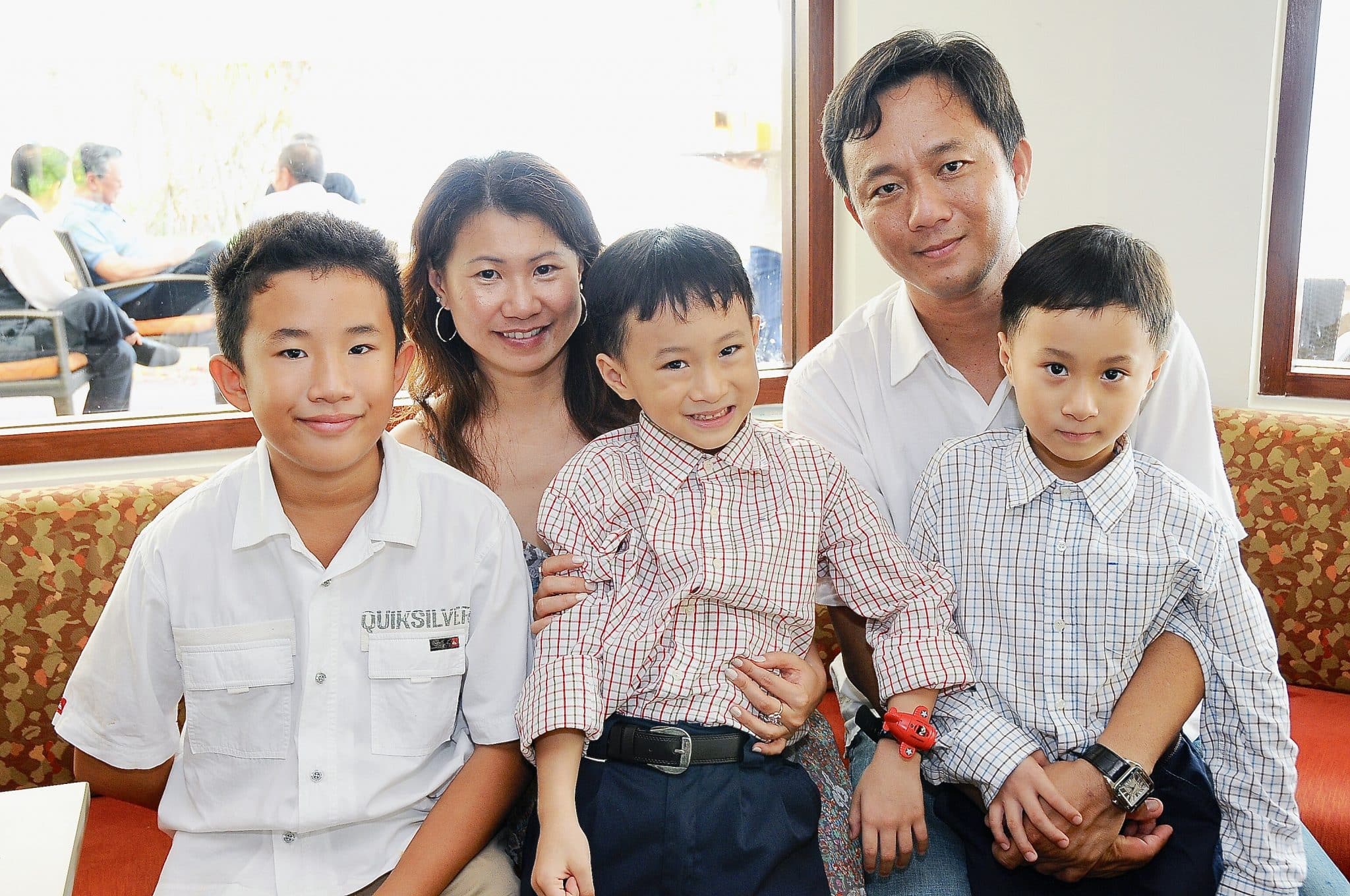He has Asperger’s Syndrome and ADHD. But God opened doors for him to build pipe organs
by Christine Leow // November 8, 2023, 4:13 pm
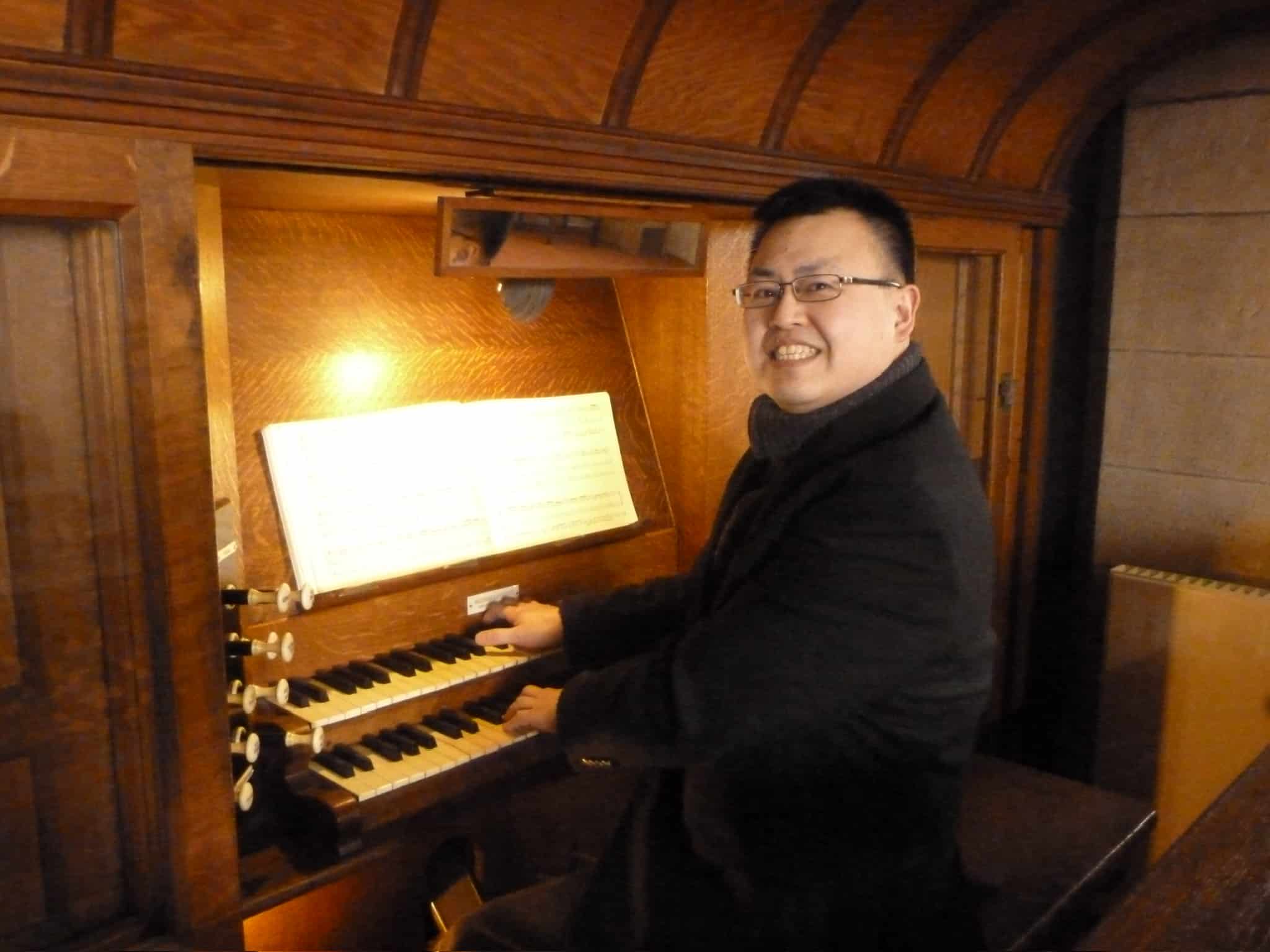
Adriel Yap at St John’s Neville’s Cross in the United Kingdom where he worships regularly. While he had once lamented his limitations, he no longer does. All photos courtesy of Adriel Yap.
Some jobs have a way of raising eyebrows and piqueing interest. Adriel Yap’s job is one of them. Adriel is a pipe organ builder.
For 18 years, the 53-year-old has been working in the United Kingdom as part of team that crafts pipe organs by hand. Pipe organs are the largest musical instruments in the world and some organs that Adriel makes are massive, taking over two years to build from scratch.
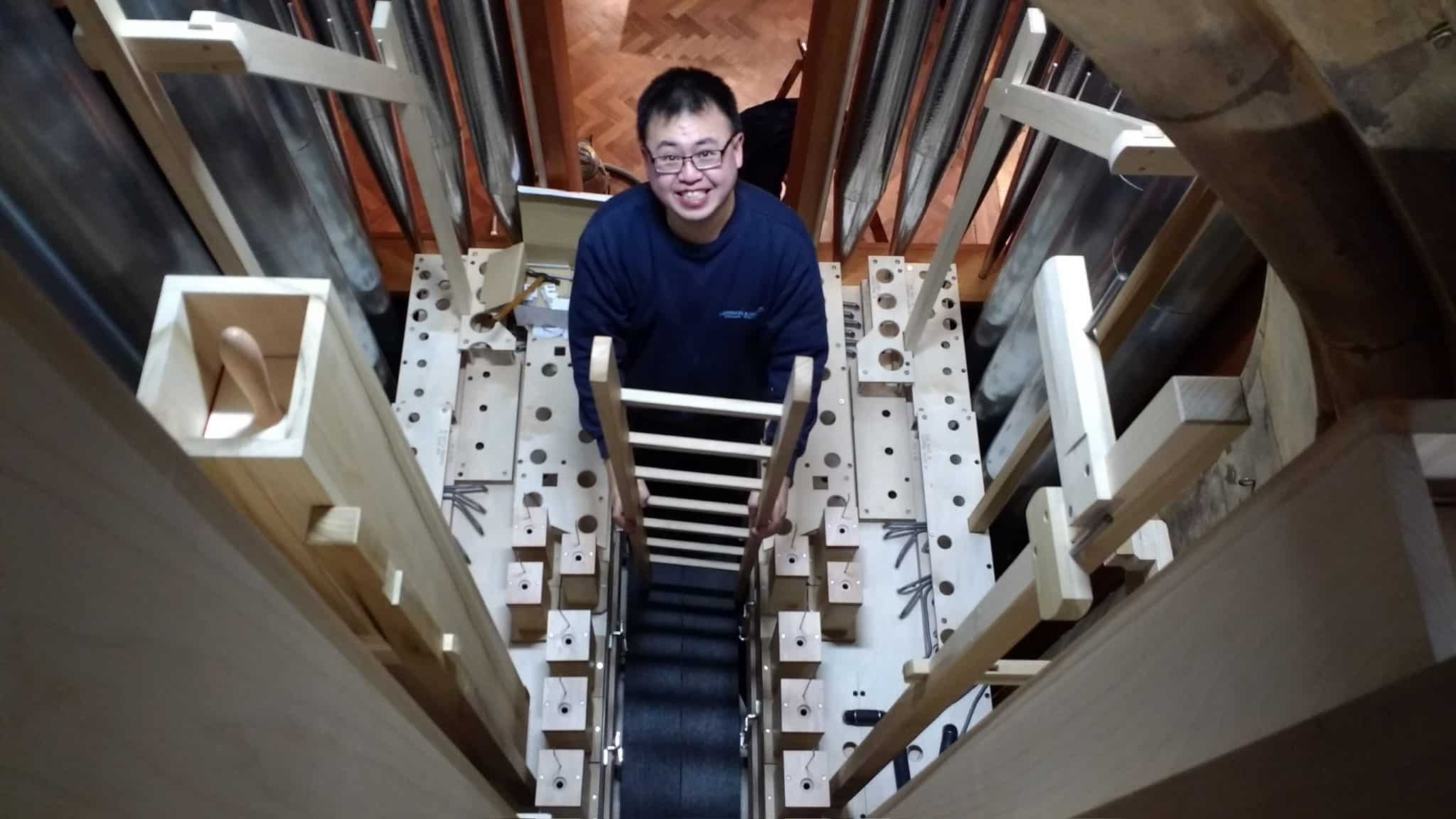
Pipe organs can be so large that people can sit inside them. Adriel is seen here inside a pipe organ at St Andrew’s Church in Bedford, United Kingdom.
“The last one I installed was three stories high and the length of the stage.”
The very things that identify him as having Asperger’s Syndrome are what have made it possible for him build pipe organs.
Asked how he landed such an intriguing job, he says: “I’ve had a life where I have not had to work very hard to be in very good places.
“I think God desires the best for us and He puts us in the best position when we are the person we are meant to be. I trust in a faithful God who wants the best for everyone.”
Adriel shares this not as a boast but as a matter of fact.
He is someone who truly understands what it is like to embrace “the person we are meant to be”.
At nine, he was diagnosed with minimal brain dysfunction. In his 20s, he was diagnosed with Attention Deficit Hyperactivity Disorder (ADHD). When he was 35, he received a formal diagnosis of Asperger’s Syndrome, a type of developmental disorder that is part of Autism Spectrum Disorder (ASD).
But the very things that identify him as having Asperger’s Syndrome – the precision, the hyper-focus, the deep interest in a few subjects – are exactly what have made it possible for him to carve out a career in building pipe organs.
“There’s something wrong with his brain waves”
As a child, Adriel never felt he was different.
“I thought that everyone else was strange.”
In fact, he often wondered why other children were not similarly interested in “watching things go round and round”, and taking things apart and putting them back together again.

As a child, Adriel liked pulling things apart and then putting them back together again. Now, this is part of what he does in his job. Here he is installing new cabling inside an organ.
Although clearly intelligent, school was not easy for Adriel. He struggled to read and write, finding it difficult even to hold a pencil properly. In general, his coordination was poor, a symptom of Asperger’s. Till today, he has difficulty telling right from left.
But this was the 1970s and a formal diagnosis of the condition was not readily available in Singapore. Eventually, when he was nine, his mother got him tested.
“They stuck wires onto my scalp and recorded my brain waves. Then they said, ‘There’s something wrong with Adriel’s brain wave. But there’s nothing you can do about it.’”
“My mother’s take was: He’s not disabled; he is able to function with some normality. It is what it is.”
That test was an electroencephalogram (EEG) that measures electrical activity in the brain using small, metal discs called electrodes attached to the scalp.
Adriel’s parents were both dentists and therefore medically trained. That may have helped them manage the situation.
“I think they had a better understanding than most about developmental or neurological issues.
“My mother’s take was: He’s not disabled; he is able to function with some normality. It is what it is.”
In primary school, Adriel would eventually excel in some subjects and fare dismally in others, particularly in Chinese which he failed. That landed him in the Normal Stream in secondary school.
Ever the optimist, Adriel says: “I was okay with it because what it meant to me was this – it was the equivalent of me having five days to do what others had fours days to complete. I had one more day to play.”
After that, school improved for him.
“I was given more autonomy and was left by my teachers to sort out my own learning. University was relatively easy for me because I didn’t have anyone to tell me how I needed to study and I could just get on with the job in my own way.”
A path to organ building
What Adriel could not have anticipated was how the events of his childhood would help him build a life in a very unique job.
“Music is unambiguous. Words often mean more than one thing.”
Growing up, his parents never pushed him to excel. Instead, they would expose him to things they thought would engage him.
When he was about seven or eight, his mother introduced him to the organ. It seemed a natural thing for a family that was very musical. His paternal grandfather played the mandolin and his aunts on both sides of the family sang in the church choir. Family gatherings would often include singing.
“Music wasn’t something you go for lessons to learn. It was a part of life.
“My mother thought, ‘Let’s find things where Adriel can entertain himself.’ That was her strategy because once I was into a routine, you didn’t have to bother with me.”
The predictability of the instrument and its mechanical nature, not to mention its “many buttons and controls that make loud noises”, appealed to Adriel who confesses that he prefers when things are literal.
“Music is unambiguous. Words often mean more than one thing. You may interpret music but that’s within narrow boundaries.”
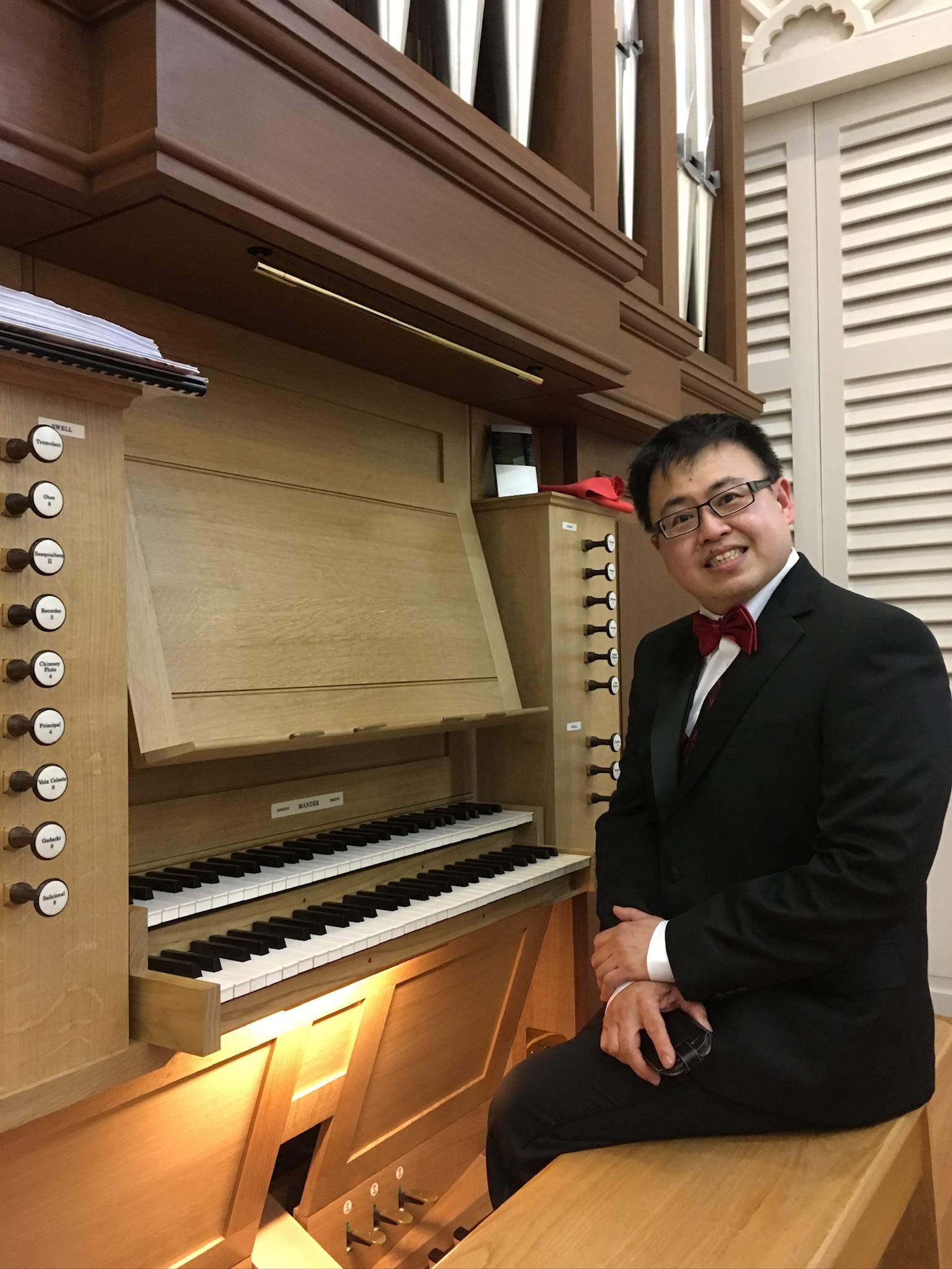
Playing for a Christmas concert at the new Mander pipe organ in St George’s Church, Penang, in December 2017.
This would lead him to playing the organ in church when he was 14.
“Miracles and all that was simply part of life.”
Adriel also comes from generations of Christians, many of whom were leaders in the church.
His great-grandfather and grandfather were church elders. His maternal grandfather was a key leader at Prinsep Street Presbyterian Church while his mother was part of the team which eventually started Lighthouse Evangelism.
Because of his Presbyterian upbringing, Adriel grew up exposed to the sacredness of Scripture, while exposure to Lighthouse Evangelism’s healing rallies gave him a front-row seat to the powerful display of the Spirit.
“Miracles and all that was simply part of life.”
In junior college, Adriel’s interest in assembling things was given a platform. That would be another training ground for his organ building career.

Making a draw stop action cable for a pipe organ for St Mary the Virgin at Bathwick.
He had few friends his age then. But there was an Art teacher who took him under his wing.
“I would hang out in the college’s art room and ended up volunteering to help him make decorations for celebrations in the college.
“It was my safe space. He was someone I could work with and say, ‘I had a good afternoon because I finished a banner.’”
The goodness of God in the land of the living
Adriel went on to university and then to a Master’s degree in Geography. While planning to earn a PhD, he decided to go into teaching first because he was offered a job in a school.
“I thought it would be a good time to gain a practical skill and build up savings before doing more post-graduate studies. Teaching looked like a sensible option and I had done some relief teaching before.”
“Life for me has been a series of accidents.”
However, the stress of a full teaching load, along with other responsibilities, proved too much for Adriel, who prefers to focus on one thing at a time.
He started to experience more allergic reactions. Instead of an attack once every two years or so, he had an attack four times in a year. Each attack would send him into an anaphylactic shock which could potentially be life-threatening.
“I don’t know what I am allergic to. Stress can trigger this sort of things.”
Ever sanguine, Adriel adds: “All this gives you a sense that life is not permanent. But if you’re going to heaven, why would you mind?”
It was during this time that he had lunch with a visiting organist from the United Kingdom who told him of an opportunity to learn how to build pipe organs in his country. Adriel wrote to Harrison & Harrison of Durham, England. Within a month, they invited him to join them.
“I don’t think I even asked for a job. The offer was for training and it came with the possibility of a job if I completed the course successfully. But that wasn’t a given.”
It was, however, something for which God prepared him.
Around 2010, Adriel had gone to live at the Community of Taizé in France as part of his spiritual retreat. It was the brother who accompanied him during that week of silence who suggested that he pursue his dream of building organs.
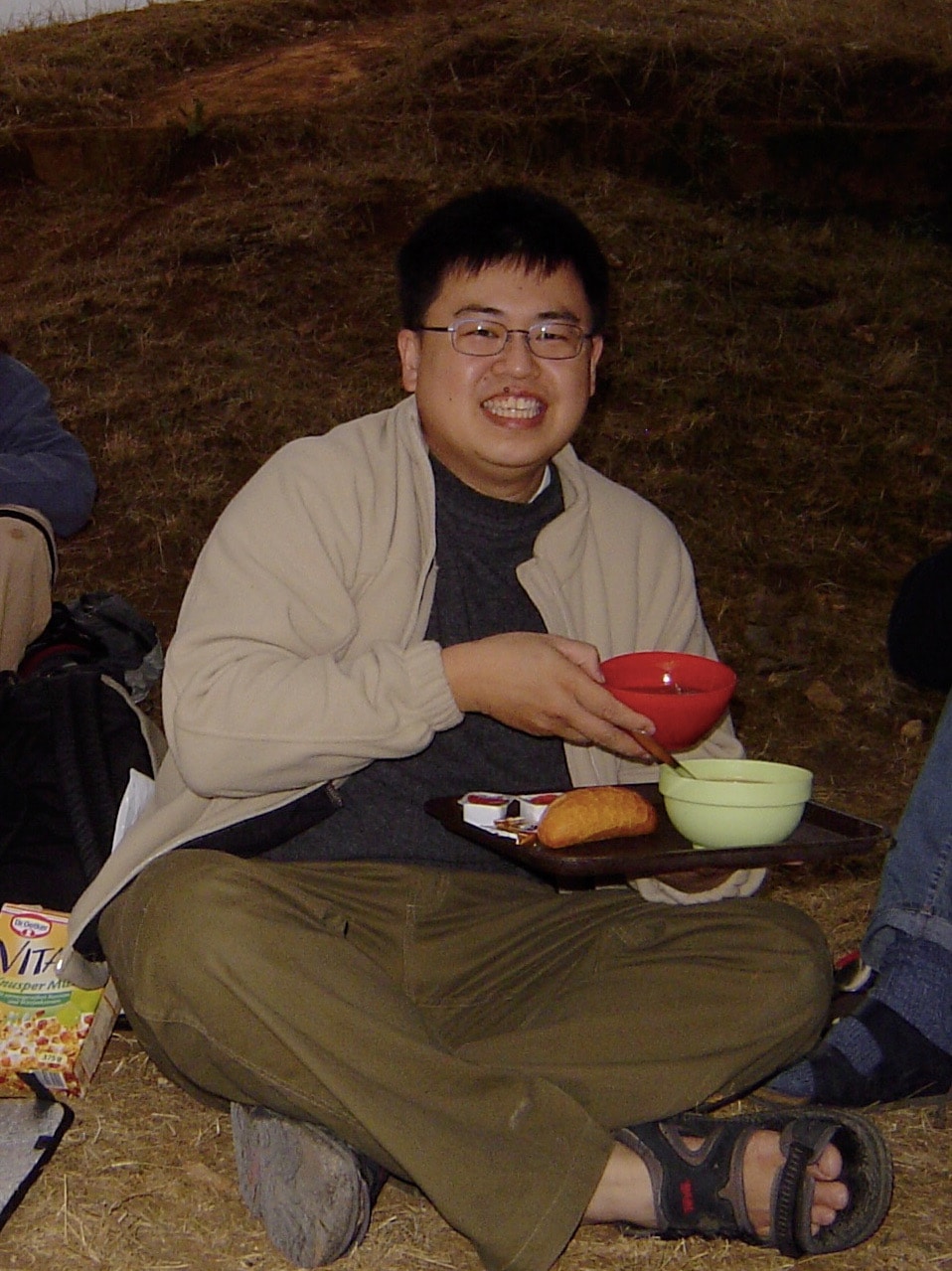
Having breakfast at the Community of Taizé in France.
“The seed was there then but it never got a chance to flourish. It wasn’t something I was actively looking for even though I had been actively promoting the instrument,” says Adriel who is a founding member of the Singapore Chapter of the American Guild of Organists, and its first Programme Director.
As with many things in his life, what should have been a disappointment became a doorway to better opportunities.
Now the chance presented itself. Adriel accepted the offer.
When he first arrived in the United Kingdom, Harrison & Harrison applied for a training visa for him that would expire in five years. The request was denied.
As with many things in his life, what should have been a disappointment became a doorway to better opportunities. The company made a second application. This one qualified him for permanent residency, allowing him the opportunity to put down roots in the country.
“Life for me has been a series of accidents,” he said wryly.
Asked if he believed it was God’s hand at work, Adriel replied: “We think that the gold standard is being able to explain everything through a systematic theology that follows the laws of reason.
“Perhaps we should leave some space for mystery, for the fact that we don’t always need to understand everything. We have limited understanding.
“I believe that you will see the goodness of God in the land of the living.” (Psalm 27:13)
In his nearly two decades with Harrison & Harrison, he got the chance to work on pipe organs at Westminster Abbey, Kings College Cambridge and Canterbury Cathedral.
An accomplished organist who has won competitions, he passed the diploma examinations to be an Associate of the Royal College of Organists in 2021.
Connecting and communicating
As much as music has shaped Adriel’s career, it has also moulded his Christian faith.
As a young organist for churches and even seminaries, he had the chance to meet leaders and theologians from different denominations.
“I do relate to God emotionally, but not in the way most people do.”
“I couldn’t bear to hang out with teenagers my own age. But I could talk to some adults about things like spirituality, whether atonement is limited, the sensitivities between church and the state in Singapore.”
In the course of time, he was also introduced to the Taizé style of music which is a prayerful, simple and repetitive form of music that ushers people into a time of listening to God.
To most, silence and solitude can be a struggle. But because he is neurodivergent, Adriel welcomes quiet.
What most would consider a developmental disadvantage once again became something that paved the way forward. The quietness and the regularity of Taizé music helped him connect with God in a way more emotive styles failed.
“The music, which is calm, allows you to be more honest with yourself. The silence is really important because it gives you the space to deal with whatever is inside you.
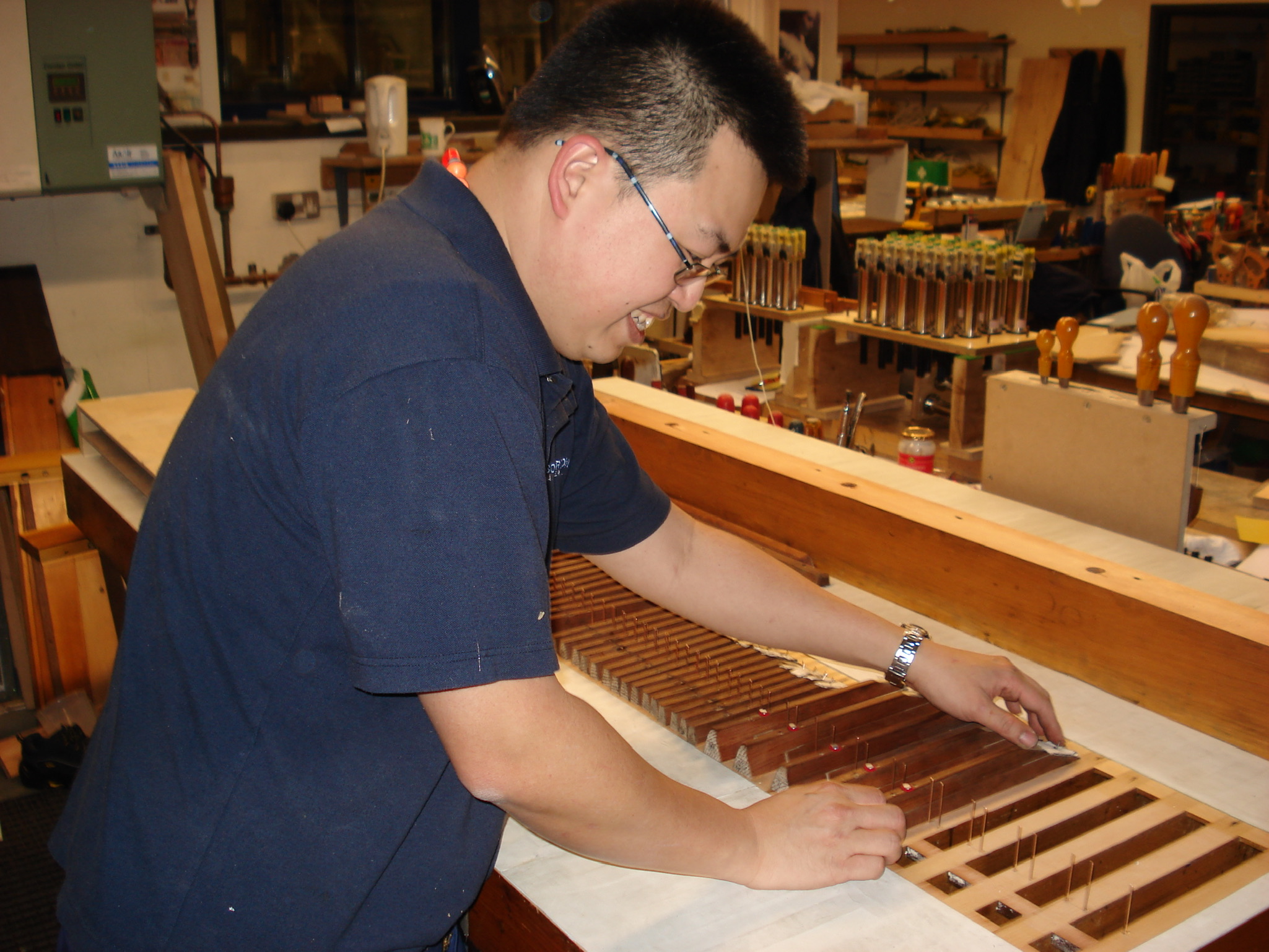
Fitting pallets on a restored soundboard.
“So I do relate to God emotionally, but not in the way most people do.”
“I’m fortunate that the right people came along at the right times in my life.”
If Adriel had once lamented his limitations, he no longer does.
There is, however, one regret.
“I would have liked to start a family. But I never had a romantic relationship, didn’t know how to initiate things, didn’t see anyone available who was interesting enough for me,” he told Salt&Light.
“I don’t know how people react emotionally. I can only see how they behave. So I can observe and understand on one level. But I don’t understand it intimately because my head is not wired like most people’s.”
Adriel has worked hard to achieve what comes naturally to many, attending courses on how to relate to people and communicate better.
“I’m fortunate that the right people came along at the right times in my life. I have chosen friends who take me seriously and with whom I don’t have to explain myself too much.”
RELATED STORIES:
Helping children with special needs find their place in the world
Helping children with special needs find their place in the world
Reflecting our disability-inclusive God: How can the body of Christ love those with special needs?
“Disabled does not mean unable”: 10 persons with special needs ascend Mount Fuji
We are an independent, non-profit organisation that relies on the generosity of our readers, such as yourself, to continue serving the kingdom. Every dollar donated goes directly back into our editorial coverage.
Would you consider partnering with us in our kingdom work by supporting us financially, either as a one-off donation, or a recurring pledge?
Support Salt&Light